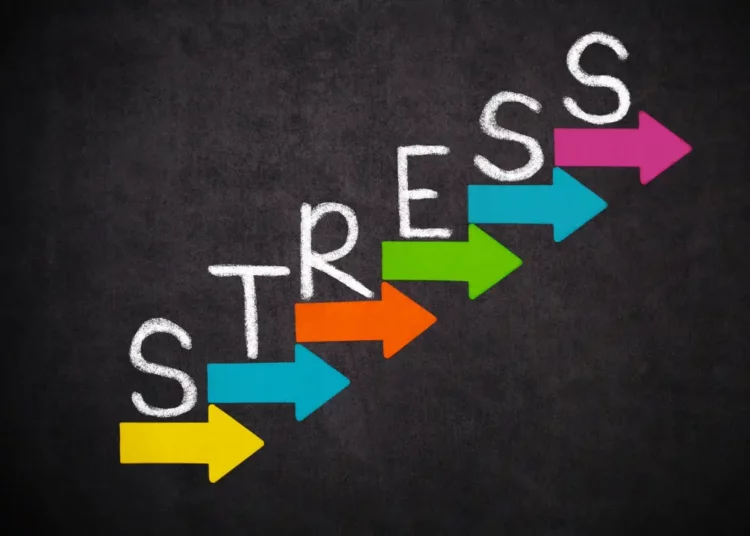Stress is a concept and an experience that is familiar to us all. It affects us throughout our lives, from our very beginnings to our final moments.
If our mother gets evicted or loses a loved one or even has an intense argument while she is carrying us, the stress she feels crosses the placenta and our developing bodies feel it, too.
Across our own lives, the thousands of ups and downs we encounter affect our total beings continuously; inevitably, some of these cause us stress. Sometimes we can anticipate a stressful situation, but often it arises suddenly and without warning.
What do we mean by stress? In the most general sense, it refers to some kind of demand on our body and our psyche. There is a range of levels and types of stress, from common challenges of everyday life to life-threatening events. Research over the past three decades tells us that the effects of chronic or severe stress on our social behavior and our physical and mental health can be long-lasting.
Stress, whether it is brief or mild, is a frequent and usually manageable occurrence. Crossing the street for the first time on your own, the first day at school or at a new job arouses anxiety and requires containing or managing that anxiety in order to get through the experience. You have to stretch a bit to meet the demands of an unfamiliar environment and new people. Doing almost anything for the first time can create some stress. But this is also a good thing: it is those demands that ask us to reach, which help us grow as individuals, developing strengths we didn’t know we had.
Exposure to greater threat or adversity, such as a natural disaster or the death of a family member, is considered a higher degree of stress, but is “tolerable,” given certain conditions. These more serious situations cause a strong activation of our body’s built-in neurobiological warning system: the stress response system. This is a network of physiological and neurological processes that is set off when we perceive a threat. This emergency reaction system releases hormones (adrenaline, cortisol) that are designed to prepare our bodies for immediate action—fight (confront the situation or threat) or flight (flee from the danger). If you think of a time when you almost got into a traffic accident, you may remember a tingling feeling all over your body and a sudden heated flush—these are the manifestations of your stress response system activating, alerting you that you need to brake or swerve to avoid another car.
Although tolerable stress can evoke a stress response, it is manageable when there is some support from others. For example, after the death of a loved one or experiencing an earthquake, it is the opportunity to speak about it with caring others that helps calm down our stress response, manage the feelings, and eventually come to terms with what we have experienced. Mourning a loss or debriefing a frightening experience is very much part of coping with these events that might otherwise overwhelm us.
The most severe level of stress is toxic stress, situations that are so threatening or truly harmful that they cause frequent or prolonged activation of our stress response system, with no supportive person available to mediate this response. This is especially true for a child alone in a dangerous situation (separated from parents in a chaotic war situation, or experiencing child abuse in her own home), and is deeply problematic for adults who feel alone in traumatic situations as well.
If you experience repeated toxic stress that is unmediated by support, your stress response system is activated over and over or remains activated. Stress hormones flood your body and you can’t stop being on alert, or your system shuts down and you develop a defensive numbness. Your ability to accurately identify danger gets impaired and you might see a threat where it doesn’t exist and react inappropriately, or you might fail to see the real threat and be victimized.
People of all ages who suffer toxic stress, particularly early in life, and who have no opportunities to unpack it in the presence of a supportive person, are troubled by a host of negative outcomes. These include physical symptoms, serious chronic illnesses, and mental health problems, including post-traumatic stress disorder. They experience higher rates of unemployment, incarceration, and suicide.
The quote “Whatever doesn’t kill you makes you stronger,” is a paraphrasing of a line in Twilight of the Idols, published in 1888 by the German philosopher Friedrich Nietzsche. He is pointing to the growth that can arise from coping with adversity.
To this, I would say yes, but only if you have the good fortune to process your adverse experience with another human being. When you must cope entirely on your own, you may very well survive all kinds of stress, but all too often, it does not make you stronger but instead leaves you less able to protect yourself or to enter freely into positive relationships and more susceptible to a host of ills.
As social beings, we need the understanding and support of our fellow human beings to turn adversity into strength.
For more information, visit https://wendybsmithphd.net
Explore how stress shapes us and discover strategies to manage it with IMPAAKT!

 More about Dr. Wendy Smith
More about Dr. Wendy Smith










